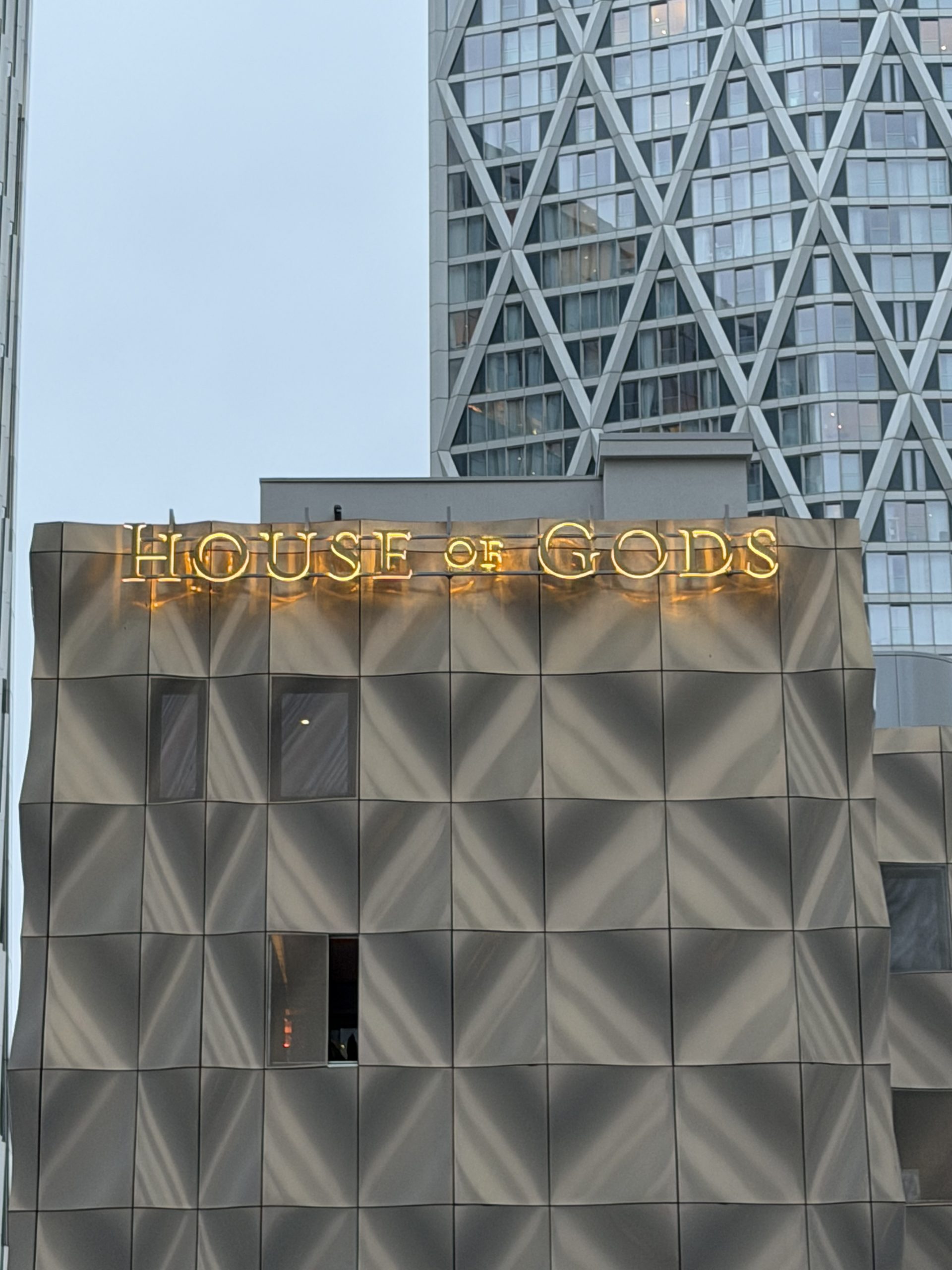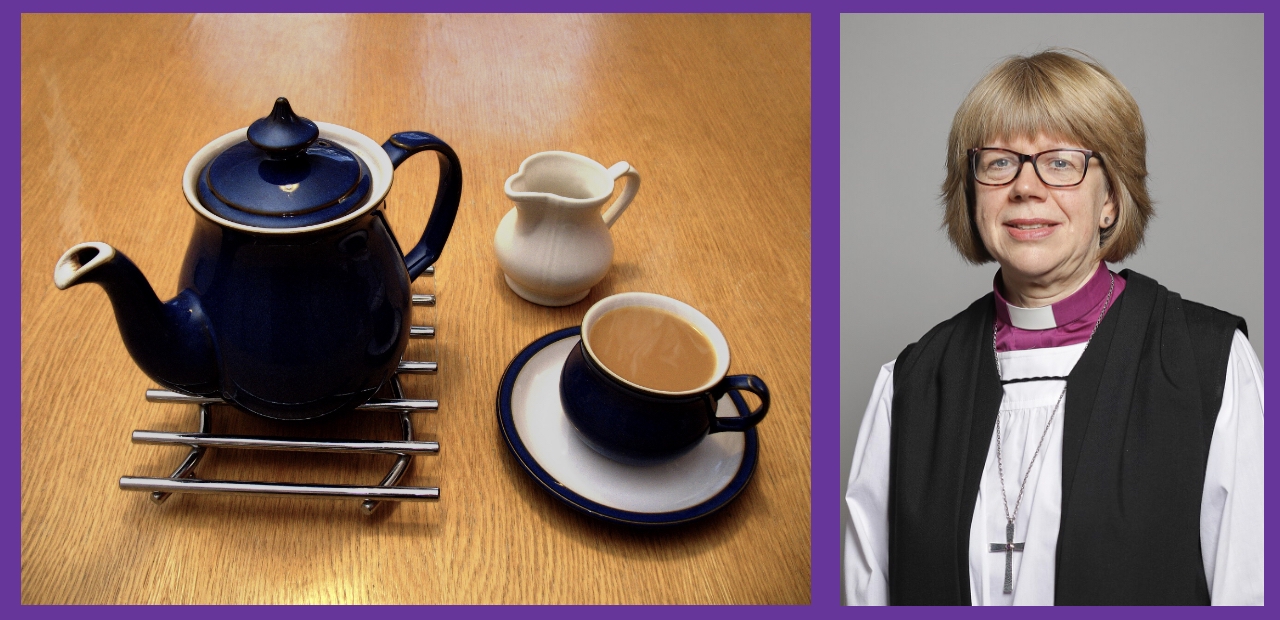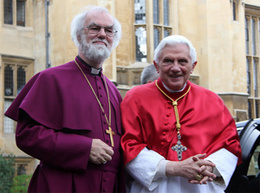The Church of England
A new Archbishop and a new agenda?
In his Editorial for the beginning of Lent, the Editor, The Rev'd Dr. Nicholas Henderson writes: So, thus far the new Archbishop of Canterbury has been through three of the four stages of appointment. ... Sarah Mullaly is therefore already legally Archbishop of Canterbury despite not yet having been enthroned. Thus, there is no longer any hiding of views and/or direction of leadership. ... CLICK ON PICTURE TO CONTINUE
More tea Archbishop? – Editorial a new Archbishop of Canterbury
The Editor: The Rev'd Dr. Nicholas Henderson writes: The appointment of a woman as the 106th Archbishop of Canterbury is to be welcomed. Apart from those in the more conservative wings of the Church, the choice of someone with two copies of the X chromosome is nowadays of little or no consequence. The Rt Rev’d and Rt Hon Dame Sarah Mullally the current Bishop of London fits the bill. ... She has, of course, an impossible job specification. ... “How is it that the Roman Catholics can elect a Pope in two days of conclave, whilst it has taken the Church of England almost a year?” A fair question asked of this author, who was bound to reply “… but the Archbishop of Canterbury isn’t a Pope.” Indeed far from it, the post-Reformation settlement that led eventually to the wider Anglican Communion with the Church of England having the monarch as its Supreme Governor was as a result of Protestants looking carefully at their bibles and being unconvinced of a Petrine succession. ... CLICK ON PICTURE TO CONTINUE
Genocide in Gaza and War Crimes in the West Bank – An Open Letter
In an Open Letter the Public Square Group authors write: We, along with so many of our fellow-citizens, are appalled by the atrocities being committed in Gaza and the West Bank, which is causing so much widespread starvation, death and destruction to thousands. ... It really is time for a strong public witness from our Church and nation ... CLICK ON PICTURE TO CONTINUE ...
Are Archbishops becoming an endangered species?
Editorial for the Feast of SS Peter & Paul. The Editor, The Rev'd Dr. Nicholas Henderson asks: "Are Archbishops becoming an endangered species?" The Archbishop of the Church in Wales has become the latest Archbishop to resign. This has come, in what must seem to many, to be confusing and complicated circumstances surrounding events at Bangor Cathedral. It was only earlier this year that the then Archbishop of Canterbury relinquished his position early over the Makin Report, a resignation for which latterly he has expressed some misgivings. One could add former Archbishops to the list who in the last few years have ended their tenure and then lost their permissions to officiate, again for rather confusing and complicated reasons. ... In this respect do we really need an Archbishop? CLICK ON PICTURE to continue.
God’s Graffiti? – Guest Editorial
Professor Martyn Percy writes in his Guest Editorial: Undoubtedly the nation (by which I mean England) is now at a turning point in its history and culture. In 2034, the Church of England—a national Protestant church that decisively broke from Rome—will be 500 years old. Lambeth Palace has no plans to mark this event, as Anglicans are divided on whether this is their quincentenary. Some Anglicans think that the Church of England is a continuing Catholic church. That is not how the Vatican views this national Protestant denomination founded in Swiss-German Reformed theology. Unable to explain itself, the Church of England hierarchy stays quiet on such issues, doubtless hoping that keeping up appearances will obfuscate the reality. ... CLICK ON PICTURE TO CONTINUE
Lived Mission in 21st Century Britain – Ecumenical and Postcolonial Perspectives
The Rev'd Dr. Adrian Hough in his review of 'Lived Mission in 21st Century Britain - Ecumenical and Post Colonial Perspectives' writes: This is a good book; indeed, this is a very good book and an important book. If more people were to read it than ever will and if they were to then act upon what they had read, British Society would be improved and our churches would be more vibrant and effective at sharing the Good News that God has for everyone. As the existence of editors implies, this is actually a book of essays, fifteen in all, together with an introduction and a concluding discussion. The authors come from a wide range of backgrounds and denominations (although there are rather more men than women) and they were all asked to address the subject of Mission as a lived experience. In case the reader was unaware of the distinction, the editors also make it clear that Mission is not the same as Evangelism nor is it explicitly about evangelism. ... CLICK ON PICTURE TO CONTINUE
Archiepiscopal vacancy
The Rev'd Dr. Nicholas Henderson, Editor: Anglicanism.org writes in his latest Editorial - The recent resignation of Justin Welby as Archbishop of Canterbury, at first resisted, became almost inevitable. The astonishing and appalling nature of the sado-masochistic proclivities inflicted on well over a hundred young male victims in the UK and then in South Africa and Zimbabwe, by the late John Smyth QC in the name of religion have ensured that there would eventually be collateral damage, not least on the victims themselves. It is the Church of England under which auspices Smyth operated that must be most alarmed..... CLICK ON PICTURE TO CONTINUE
East meets West – a reflective faith journey from China to London
Jenny Clarke writes: I was brought up as an atheist. I remember that at the age of 10, I made a vow to devote my life to communism, and I received a red scarf, which signifies my status as a member of the Young Pioneers of China. In a way, this ceremony is very similar to a standard confirmation service in my church. We had 12 children from the local parish school confirmed on 12th May 2024, but I hardly saw them afterwards in the church on Sundays. This is not a criticism. Turning up to Sunday mass week by week requires sacrifice. Those youngsters will have had to miss football clubs, Sunday TV, weekends away or other fun. Sometimes, I struggle to go to mass, so I shouldn’t offer to take the speck out of others' eyes before taking out the beams of my own. ... CLICK ON PICTURE TO CONTINUE
The Ambiguous Legacy of John Henry Newman
Dr. Graham Kings reflects on the legacy of John Henry Newman in the light of the UK papal visit of 2010 - Beguiling and virulent, holy and vituperative, quicksilver and splenetic, charming and cantankerous: there are many sides to the character of John Henry Newman ...
The frog in the pan – reflections on the ‘culture of church’
Bishop Robert Paterson writes: “Increasingly, the culture of ‘church’, particularly in those churches that are old and hard of hearing, is alien to most people. Most people do not customarily gather on Sunday mornings to sing in chorus with others, handling books (let alone several of them), sitting on wooden benches in cool buildings, ...










